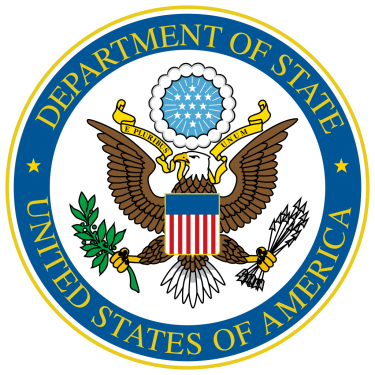How to Effectively Use Letters Rogatory in Cross-Border Legal Instances
How to Effectively Use Letters Rogatory in Cross-Border Legal Instances
Blog Article
Letters Rogatory Explained: Facilitating Legal Participation Between Countries

Interpretation of Letters Rogatory
Letters rogatory are formal demands made by a court in one territory to a court in another territory, seeking support in obtaining evidence or testimony for a lawful case. This procedural mechanism is necessary in the context of worldwide regulation, where legal systems might differ, and cross-border participation is essential. Letters rogatory help with the event of information that might be crucial for settling situations, particularly in circumstances including complicated multinational issues.
Normally, these requests develop in civil, criminal, or administrative matters where a party calls for proof that lies outside the territory of the asking for court. The letters act as a means to guarantee that the principles of due process are upheld, enabling courts to accessibility evidence that may otherwise remain inaccessible due to geographical or lawful obstacles.
The usage of letters rogatory is regulated by international treaties, reciprocal arrangements, or domestic laws, which define the procedures and commitments of the courts included. It is very important to keep in mind that the implementation of such requests is not ensured; they rely on the legislations and techniques of the jurisdiction receiving the letter. Hence, letters rogatory are a crucial tool for cultivating legal collaboration and guaranteeing justice throughout borders.
The Refine of Issuing Letters Rogatory
Issuing letters rogatory entails a structured procedure that makes certain conformity with both domestic and global lawful criteria. Originally, the requesting party, commonly a court or lawful authority, composes a formal demand outlining the nature of the assistance looked for, the evidence or information needed, and the legal basis for the request. This file has to be specific to promote understanding by the international jurisdiction.

The next step includes transferring the letters rogatory to the marked international authority. This is frequently done with polite channels or global lawful help structures, making certain that the demand is gotten and recognized by the foreign court. The international court then processes the demand according to its own lawful treatments, eventually reacting to the asking for party with the sought-after information or evidence, therefore helping with worldwide legal teamwork.
Relevance in International Regulation
The value of letters rogatory in global regulation can not be overstated, as they work as a critical device for judicial cooperation throughout boundaries. These formal ask for support in lawful matters permit courts in one jurisdiction to seek details, evidence, or the presence of witnesses from another jurisdiction, thereby facilitating the management of justice in multinational instances.
Letters rogatory are especially vital in the context of globalization, where legal conflicts often span multiple nations. They make it possible for the collection of proof that could or else be inaccessible, ensuring that legal process are educated and reasonable. By cultivating collaboration in between judicial systems, letters rogatory assistance copyright the guideline of law and advertise common regard amongst nations.
In addition, making use of letters rogatory demonstrates a dedication to global standards and principles of collaboration, mirroring the interconnected nature of modern-day lawful practices. It illustrates the relevance of sticking to recognized treatments and treaties, such as the Hague Convention, which offers a framework for check this these demands - Letters rogatory. Eventually, letters rogatory boost the efficacy of lawful processes, ensuring that justice is not hindered by geographical boundaries
Difficulties and Limitations
Despite their significance, letters rogatory face a number of obstacles and restrictions that can impede their performance. One primary issue is the differing lawful structures and procedures across territories, which can result in misconceptions and delays in the this hyperlink execution of demands. Various nations may have distinct requirements for the validity of letters rogatory, complicating the procedure even more.
Furthermore, the frequently drawn-out nature of international lawful teamwork can impede timely access to evidence or witnesses. This delay might negatively influence recurring investigations or lawful proceedings, specifically in cases calling for urgent action. Moreover, the absence of sources and training in some jurisdictions can lead to insufficient handling of requests, resulting in insufficient or incomplete feedbacks.
Nations with much less formal lawful systems may struggle to conform with the procedural rigor expected in letters rogatory. These challenges necessitate constant dialogue and reform to boost the efficiency of letters rogatory in lawful teamwork.
Study and Instances

Alternatively, challenges can develop, as seen in a case entailing a European nation seeking evidence in a continuous criminal matter from a non-EU country - Letters rogatory. The process was delayed because of administrative hurdles and varying legal criteria, eventually impeding the investigation
These examples illustrate that while letters rogatory can help with worldwide collaboration and quicken lawful process, they likewise highlight the need for clear communication and understanding of lawful structures in between countries. Such study emphasize the relevance of refining this tool to enhance effectiveness and effectiveness in global legal matters.
Conclusion
In summary, letters rogatory offer as a resource crucial mechanism for promoting legal participation in between countries, guaranteeing the collection of proof and testimony throughout territories. Their relevance in international regulation can not be overemphasized, as they promote due process and enhance the efficiency of cross-border legal procedures.
Letters rogatory are official requests made by a court in one jurisdiction to a court in one more territory, looking for support in acquiring proof or testament for a legal case. The asking for party, usually a court or legal authority, prepares a formal demand outlining the nature of the support sought, the evidence or information required, and the lawful basis for the request. The foreign court after that processes the request according to its own lawful treatments, eventually responding to the requesting celebration with the popular information or evidence, thus facilitating worldwide lawful teamwork.
Furthermore, the use of letters rogatory shows a commitment to international standards and principles of cooperation, mirroring the interconnected nature of modern-day lawful techniques.Worldwide lawful teamwork with letters rogatory is not without its real-world implications, as illustrated by various instance researches that highlight both successes and challenges.
Report this page